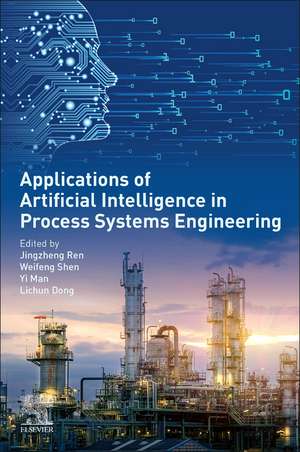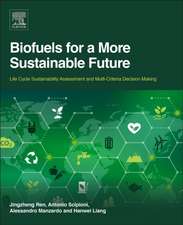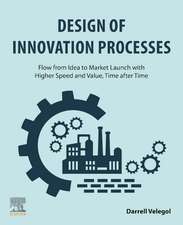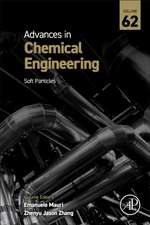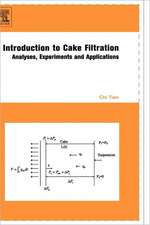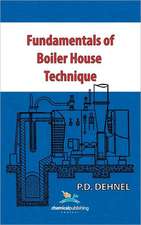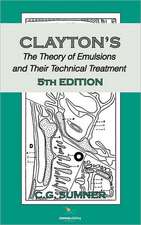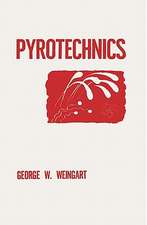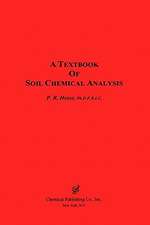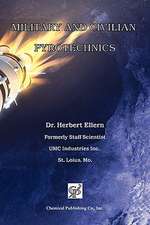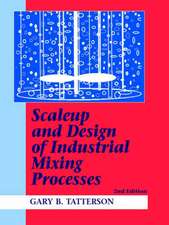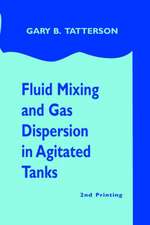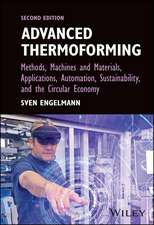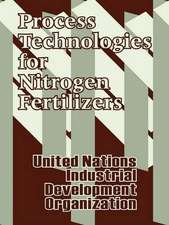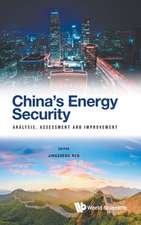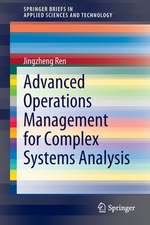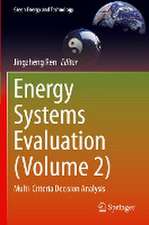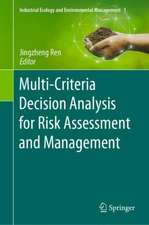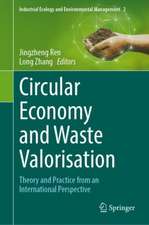Applications of Artificial Intelligence in Process Systems Engineering
Editat de Jingzheng Ren, Weifeng Shen, Yi Man, Lichun Dongen Limba Engleză Paperback – 17 iun 2021
With process systems engineering's potential to become one of the driving forces for the development of AI technologies, this book covers all the right bases.
- Explains the concept of machine learning, deep learning and state-of-the-art intelligent algorithms
- Discusses AI-based applications in process modeling and simulation, process integration and optimization, process control, and fault detection and diagnosis
- Gives direction to future development trends of AI technologies in chemical and process engineering
Preț: 754.94 lei
Preț vechi: 986.08 lei
-23% Nou
Puncte Express: 1132
Preț estimativ în valută:
144.50€ • 157.02$ • 121.46£
144.50€ • 157.02$ • 121.46£
Carte tipărită la comandă
Livrare economică 14-28 aprilie
Preluare comenzi: 021 569.72.76
Specificații
ISBN-13: 9780128210925
ISBN-10: 0128210923
Pagini: 540
Dimensiuni: 152 x 229 x 33 mm
Greutate: 0.72 kg
Editura: ELSEVIER SCIENCE
ISBN-10: 0128210923
Pagini: 540
Dimensiuni: 152 x 229 x 33 mm
Greutate: 0.72 kg
Editura: ELSEVIER SCIENCE
Cuprins
Part I: Introduction of AI and Big Data Analytics
1. Artificial Intelligence in Chemical Engineering: Past, Current, and Prospect.
2. Big Data Analytics in Process System Engineering
3. Advanced Computational Tools and Platform for Artificial Intelligence
Part II: Property Prediction
4. Applications of Artificial Neural Networks for Thermodynamics: Vapor-Liquid Equilibrium Predictions
5. Support Vector Machines for The Prediction of Physical-Chemical Properties
6. Thermodynamics Prediction: Neural Networks Based Quantitative Structure Property Relationships
7. Intelligent Approaches to Forecast the Chemical Property: Case Study in Papermaking Process
Part III: Process Modelling
8. Artificial Neural Networks for Modelling of Wastewater Treatment Process
9. COD Forecasting Based LSTM Algorithm for Wastewater Treatment Process
10. Comparisons of Deep Learning Methods for Process Modelling: A Case Study of Bio-Hydrogen Production
11. Deep Learning Based Energy Consumption Forecasting Model for Process Industry
12. Chemical Green Product Design Assisted with Machine Learning: Theory and Methods
Part IV: Process Control and Fault Diagnosis
13. Artificial Intelligence for the Modelling and Control of Chemical Process Systems
14. Artificial Intelligence for Management and Control of The Pollution Minimization
15. Neural Network Based Framework for Fault Diagnosis
16. Application of Artificial Intelligence in Process Fault Diagnosis
Part V: Process Optimization
17. Bi-Level Model Reduction for Multiscale Stochastic Optimization of Cooling Water System
18. Artificial Intelligence Algorithm Based Multi-Object Optimization of Flexible Flow Shop Smart Scheduling
19. Electricity Scheduling Optimization Model for Flexible Production Process
20. Data‐driven multistage adaptive robust optimization framework for planning and scheduling under uncertainty
1. Artificial Intelligence in Chemical Engineering: Past, Current, and Prospect.
2. Big Data Analytics in Process System Engineering
3. Advanced Computational Tools and Platform for Artificial Intelligence
Part II: Property Prediction
4. Applications of Artificial Neural Networks for Thermodynamics: Vapor-Liquid Equilibrium Predictions
5. Support Vector Machines for The Prediction of Physical-Chemical Properties
6. Thermodynamics Prediction: Neural Networks Based Quantitative Structure Property Relationships
7. Intelligent Approaches to Forecast the Chemical Property: Case Study in Papermaking Process
Part III: Process Modelling
8. Artificial Neural Networks for Modelling of Wastewater Treatment Process
9. COD Forecasting Based LSTM Algorithm for Wastewater Treatment Process
10. Comparisons of Deep Learning Methods for Process Modelling: A Case Study of Bio-Hydrogen Production
11. Deep Learning Based Energy Consumption Forecasting Model for Process Industry
12. Chemical Green Product Design Assisted with Machine Learning: Theory and Methods
Part IV: Process Control and Fault Diagnosis
13. Artificial Intelligence for the Modelling and Control of Chemical Process Systems
14. Artificial Intelligence for Management and Control of The Pollution Minimization
15. Neural Network Based Framework for Fault Diagnosis
16. Application of Artificial Intelligence in Process Fault Diagnosis
Part V: Process Optimization
17. Bi-Level Model Reduction for Multiscale Stochastic Optimization of Cooling Water System
18. Artificial Intelligence Algorithm Based Multi-Object Optimization of Flexible Flow Shop Smart Scheduling
19. Electricity Scheduling Optimization Model for Flexible Production Process
20. Data‐driven multistage adaptive robust optimization framework for planning and scheduling under uncertainty
